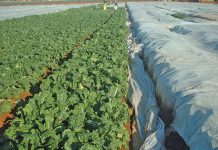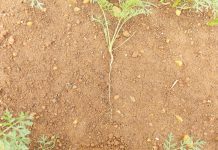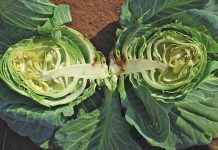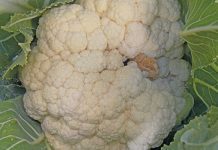A Chinese proverb says, “You can live three days without meat but not a single day without vegetables.” No offence to our meat farming colleagues, but that is music to my ears.
The Swiss-based international fresh produce journal Fruit World recently ran an article on China as the world’s largest vegetable producer. Not surprising when it’s feeding around 1,5 billion people. It reconfirmed the enormity of the Chinese market, its rapidly growing economy and rising income levels.
Vegetables play a large role in the Chinese diet and in 2009 were grown on 18,2 million hectares, producing 602 million tons of fresh vegetables a year. This signifies an annual growth rate of 6,4% for vegetables.
I enjoy quoting Chinese statistics because they’re mind-boggling. In 2009, the Chinese ate an average 440kg of vegetables per capita per annum, against a world average of 200kg. Production area under vegetables is set to rise by 7%.
But all is not as cosy as it seems. China’s soil is exploited by short crop rotation and a high chemical fertiliser rate, which will have long-term consequences. Shelf-life is limited by lack of cold-storage facilities and supporting infrastructure.
Food safety is a serious concern as high levels of pesticide residues, heavy metals and other substances are frequently detected in Chinese vegetables.
In many rural areas, water, soil and air are dangerously contaminated by heavy industrialisation and a lack of environmental protection. But the authorities are taking steps. One entails a bar code system for all approved growing areas and their products.
The bar codes will provide information on production methods, seed, pesticide management and fertiliser use, introducing an element of transparency. The Chinese grow a wide range of vegetables, some unfamiliar to us. As in most parts of the world, supermarkets are the leading distributors. Other sources include small, specialised retailers and stalls at markets or on the streets.
Vegetables rank as China’s most important agricultural food export, growing at a healthy 17,5% per annum. We’re familiar with Chinese garlic, much to local producers’ chagrin, but it also exports to Japan, South-East Asia, Russia and Canada.
China may be the world’s largest producer of apples, soft citrus, potatoes, vegetables and other products, but quality, food safety, supply chain logistics, infrastructure and environmentally safe production are still testing it.
Email Mike Cordes at [email protected].










